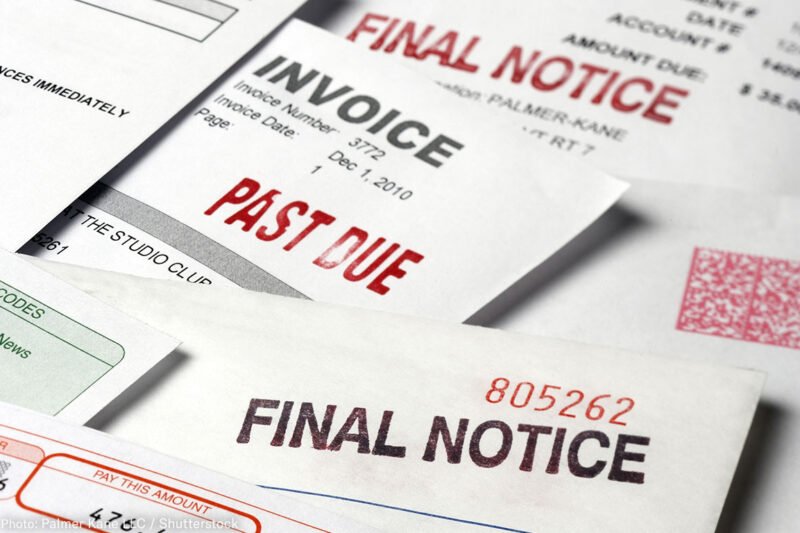In recent years and especially in the last five years, the phenomenon of the so-called "collection companies" and their operation, tends to take on uncontrollable dimensions, mainly due to the swelling of citizens' debts but also the, often, irregular and illegal behavior of the members /employees of these companies, during their communication with consumers.

What are debt collection agencies?
According to the law (3758/2009) Debtor Information Companies for Overdue Claims are companies whose sole statutory purpose is to inform debtors out of court of the existence of their overdue and demandable financial debts against creditors, before the execution of legal proceedings and the initiation stage of forced execution, arising from credit and guarantee contracts and legal commercial transactions, as well as the negotiation of the time, manner and other terms of repayment of debts, at the behest and on behalf of creditors.
Are law firms collection agencies?
No, law firms that have undertaken the collection of their client's claims (e.g. a bank) are not subject to the debt collection law, but they also have obligations regarding how to inform debtors.
The management companies have the obligation to comply with the following provisions of Law 3758/2009 during the communication process with the debtors. More specifically:
- Before any notification action, the debt must be confirmed and the debtor must be identified.
- Communication must be made once every two days or less often and during working days from 1:9 - 00:20.
- Her employee companyς να διαθέτει φανερό τον αριθμό προέλευσης της κλήσης και τα προσωπικά του στοιχεία (ονοματεπώνυμο και ιδιότητα και τον αριθμό μητρώου εταιρείας), δηλαδή να μην καλεί με «απόκρυψη».
- Inform the interlocutor that the call is recorded and the data is kept for 1 year. They are then destroyed, except if the debtor or the General Secretariat of Trade and Consumer Protection requests their preservation from the Ministry of Development and Investments in which case they must be provided within 10 days. These records cannot be used against the debtor.
- The intervention of the companies must be done exclusively for the purpose of updating the overdue debts and their settlement and providing the information of the debts, if requested by the debtor in writing within 10 days free of charge.
Management companies are PROHIBITED from using practices such as:
- The employee communicating with the debtor presents himself in a capacity he does not have, such as a lawyer or bailiff
- The exercise of physical violence, psychological pressure that endangers the property or the life of the debtor or his relatives
- The demonstration of offensive behavior against the debtor or his relatives
- The defamation or threat of defamation of the debtor in his family and work environment
- Exploiting circumstances of objective weakness of the debtor, that is, taking advantage of any illness or inability to understand what the employee is saying by the debtor
- The threat of illegal action against him
- The debtor's misleading information
- Visits to the debtor's home or workplace, as well as visits to other strictly personal places, such as hospitals
- The disturbance of his relatives in the context of defamation of the debtor
- The misleading use and presentation of documents that create the false impression that they are court documents
- Any communication that contains inaccurate information
- Η επικοινωνία για οφειλές οι οποίες απορρέουν από γενικούς conditions συναλλαγών που έχουν κριθεί καταχρηστικοί
- Acts, which are exercised only by lawyers or bailiffs, are not allowed
But what happens when they call law firms about the debt?
Based on the Lawyers' Code of Ethics, the lawyer or the law firm is prohibited from harassing the client's debtor more than once, verbally or by telephone, in order to inform him of his debt and to investigate the possibility of an out-of-court settlement of the existing dispute . In the event that the debtor subsequently does not respond, becomes inconvenient or refuses to pay the debt, the lawyer must, then, proceed with a written out-of-court complaint or exercise the prescribed legal remedies on behalf of his principal.
What are the penalties in case of violation of the above obligations of the Collection Companies?
In case of violation of the provisions, a fine of between €5.000 and €500.000 can be imposed by decision of the Minister of Development. In the event of a repeat offence, the maximum fine is doubled. Fines may also be imposed against the lending Banks.
Εννοείται ότι ο οφειλέτης μπορεί να στραφεί κατά της εισπρακτικής εταιρείας και μάλιστα κατά του υπαλλήλου ο οποίος διενήργησε την τηλεφωνική κλήση προσωπικά, αν υπήρξε αξιόποινη σε βάρος του ενέργεια όπως απειλή, εκβίαση, εξύβριση κλπ. Τα αστικά δικαστήρια είναι αρμόδια για την επιδίκαση χρηματικής ικανοποίησης λόγω ηθικής damages.
Lawyers and law firms are subject to disciplinary action for violation of contact time (more than once). The aggrieved citizen can submit a disciplinary report to the competent bar association (with a fee of €80, for the Athens Bar Association), to request the disciplinary prosecution of the guilty lawyer.
See the guide here
Consumers facing problems with telephone harassment from debt collection companies or law firms are invited to contact the Consumer Workers' Union of Greece.
Online complaint submission form: https://eeke.gr/epikinonia/kataggelies/
e-mail: info@eeke.gr
Tel: 210-8817730
Web: www.eeke.gr
fb: www.facebook.com/enosikatanaloton/





